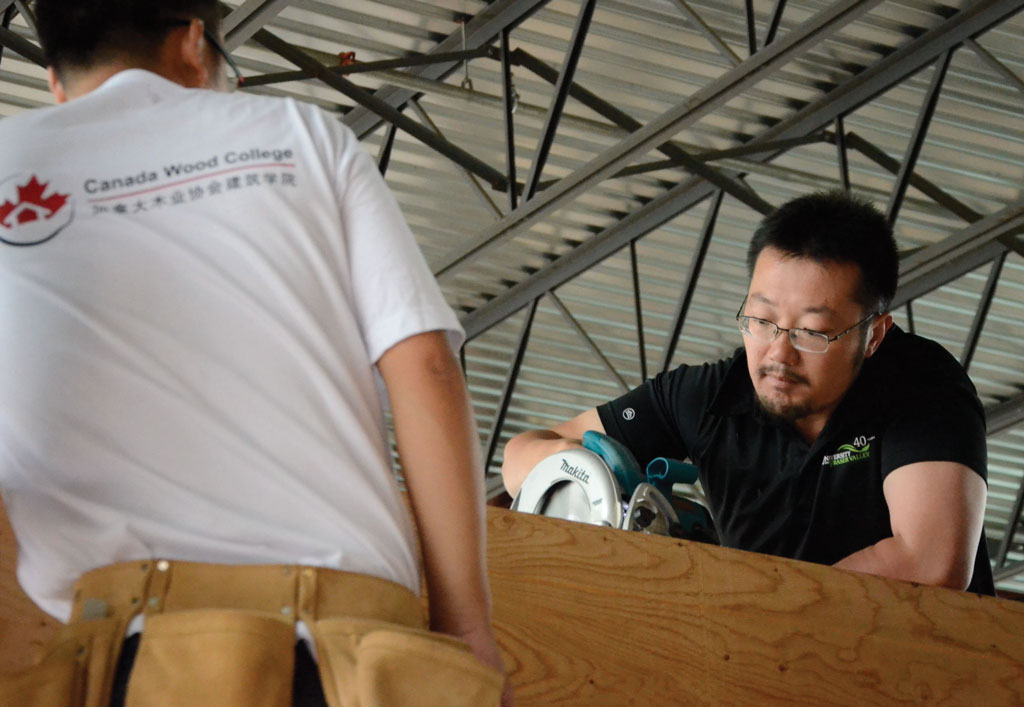By Alex Rake (Contributor) – Email
Print Edition: September 10, 2014

UFV is building new connections with China with what BC knows best: wood.
In August, the UFV Trades and Technology Centre hosted 16 Chinese industry and post-secondary instructors for a three-week intensive training program on wood-frame construction. This program was executed by Canada Wood — an organization formed to represent wood industry interests — in order to train instructors in wood-frame technology and open up the softwood lumber market to China.
John English, dean of the faculty of applied and technical studies, said in the last 15 years the provincial government has been trying to open up China as a market for softwood lumber in order to “decouple themselves a bit from the US market.” He noted Canada Wood partnered with UFV because of its existing connection to the industry, teaching carpenters, electricians, architectural technicians, and others involved in wood-frame construction.
English also went on to describe the benefits of wood-frame construction, explaining that it goes beyond the frame.
“Wood-frame is very seismically stable, it’s environmentally efficient, [and] it’s energy efficient,” he said. “[It’s a] system designed as a whole; not just the frame, but the water-proofing, the maintenance, the use of particular cuts of wood … in the design of the house.” According to English, China’s adoption of this technology is a smart move, as its concrete or brick buildings do not stand up as well to earthquakes.
Thanks to the successful summer enrolment, English is certain UFV will continue to offer the program, although in the future he would “like to do it more during the semester time so our students and their students … can interact.”
Prior to the program, Canada Wood sent two UFV instructors to Deyang, a city in China’s Sichuan province, to teach. According to English, this has led to offers “to have some of our regular students go to China and learn the regular program in the Chinese institution in an effort to get some interaction going.”
English sees these partnerships with China as more than just a way to open markets. Having witnessed first-hand the aftermath of the 2008 earthquake in Sichuan, he feels that there is humanitarian potential in this kind of program.
“I think that just the very idea that we have our faculty and students potentially interacting with people in China opens up a worldview that otherwise you just don’t get when you take a trade program … [it would be] a cultural experience, a social experience, as well as a technical one.”
“We kind of think of international exchanges and opportunities as more associated with other kinds of programming than in the trades,” he continued. “The trades can partake in a larger worldview … It’s an education, as opposed to simply being trained.”
Kerry Haggkvist, program manager at Canada Wood, noted that “UFV is laying the foundation to attract new students, provide training to staff in China, create satellite campuses, and exchange knowledge and ideas with a whole new set of partners.”


